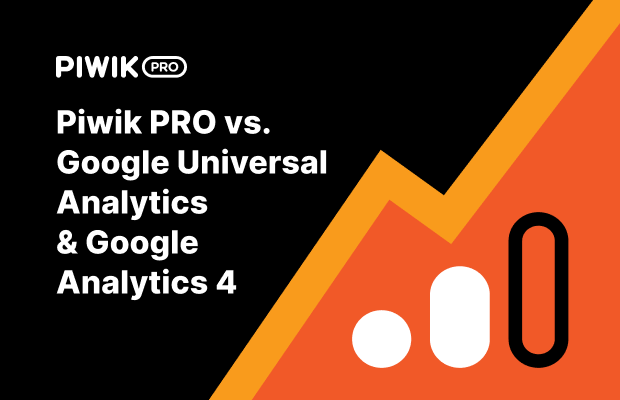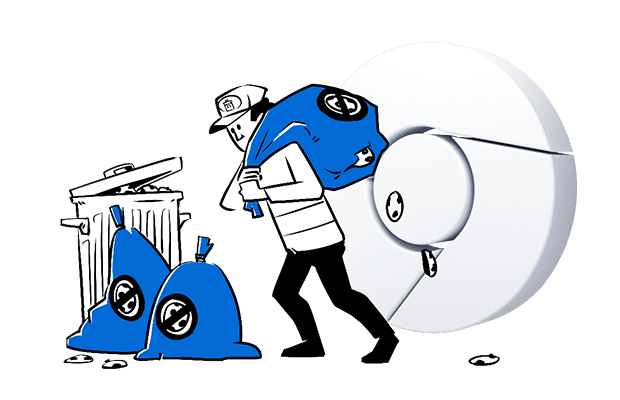-
The invalidation of Privacy Shield and the status of EU-US data transfers
Privacy Shield is no longer a valid legal framework for transferring data from the EU and Switzerland to the US. But large tech companies such as Google still send heaps of data about EU residents to the US. So what has changed?
-
Ecommerce in transition – providing a safe customer experience
Ecommerce is one of the most popular shopping methods worldwide. Many innovations and improvements led to its esteem, but above all to its success. GDPR on the other hand changed the landscape, increasing fear of revenue slumps – but the opposite is the truth.
-
Google Analytics alternative: Piwik PRO
According to W3Techs.com, Google Analytics is used by 55.6% of all websites. Its popularity comes as no surprise – it’s developed by one of the most recognizable brands in the world, offers a vast variety of features and is free. Google offers two kinds of properties: Universal Analytics and brand new Google Analytics 4 (GA4).
-
Should you run a DPIA for Google Analytics?
Google Analytics (GA) is reportedly installed on more than half of all websites. Its popularity comes as no surprise – it’s developed by one of the most recognizable brands in the world, it’s easy to get started with and it’s “free”. But the tool is useful not only for business owners, it’s also a powerful
-
What Intelligent Tracking Prevention (ITP) means for web analytics & marketing [Updated]
Apple released its first version of Intelligent Tracking Prevention (ITP 1.0) in 2017. The following iterations, especially ITP 2.2 and 2.3, complicate an already challenging set of rules for how to hamper online tracking on Mac and iOS Safari browsers.
-
Google Chrome will wipe out third-party cookies. What’s next?
At the beginning of 2020, Google caused quite a stir with its initiative to stop supporting third-party cookies by 2022. Justin Schuh, director of Chrome engineering, explains that move should make it possible to “sustain a healthy, ad-supported web.” Note After many delays, on July 22, 2024, Google announced it would not deprecate third-party cookies
-
Piwik PRO signs an open letter advocating for a tighter ePrivacy Regulation
Piwik PRO, together with twelve other companies, has signed an open letter urging EU Member States to include strong privacy safeguards in the new Privacy and Electronic Communications Regulation (ePrivacy Regulation). The letter is an initiative of Articl8, an industry group of pro-privacy companies thriving in the face of fierce competition from businesses that harvest
-
The CJEU sheds more light on trackers and consent requirements
This year, the Court of Justice of the European Union (CJEU) has issued two crucial rulings on consent requirements regarding cookie compliance, under General Data Protection Regulation (GDPR), ePrivacy Directive 2002/58/EC (ePrivacy Directive also known as Cookie Directive) and Directive 95/46/EC (Data Protection Directive). They highlight that the use of pre-ticked boxes on websites to
-
What is Third-Party Data and How Does it Fit into Today’s Marketing Landscape?
The more data the better, right? User data is the information that helps you make decisions about your online marketing ventures, but not all data is equal. Data comes from different parties: first party is the stuff you collect yourself with analytics, CRM, and other tools. Second party is someone else’s first party data that’s
-
How a cookie audit can get you up to date in today’s digital privacy landscape
Evolving from a simple document to improve website usability, have become instrumental in how website users are tracked for advertisement purposes. While they’ve been used in advertising for a long time, digital privacy has recently become a global issue in which cookies play a big part. In this post we cover how first-party, third-party and
Category: Data privacy & security
130
results
Categories
- Analytics (194)
- Banking & finance (15)
- Comparisons (15)
- Consent Manager (9)
- Conversion optimization (24)
- Customer data platform (20)
- Data Activation (10)
- Data management (53)
- Data Privacy & Security (4)
- Data privacy & security (130)
- GDPR (56)
- Government (8)
- Healthcare / HIPAA (22)
- Interviews (24)
- News & releases (48)
- Personalization (1)
- Personalization (23)
- Product best practices (26)
- Tag Manager (10)
- Use cases (36)
Newsletter
Sign up to receive the latest Piwik PRO news and insights in your inbox.









![What Intelligent Tracking Prevention (ITP) means for web analytics & marketing [Updated]](https://piwik.pro/wp-content/uploads/2020/03/itp-web-analytics-marketing_blog-1.png)







